Our Connections
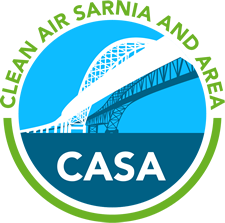
Clean Air Sarnia and Area
Clean Air Sarnia and Area (CASA) was formed by BASES Environmental Monitoring and Ontario Ministry of Environment (MECP) in September 2015 to provide important information to residents about air quality in the region. It is made up of representatives from the public, government, First Nations, and industry, who provide the community with a clear understanding of ambient air quality in Sarnia-Lambton. CASA continues to meet and provide advice and suggestions to MECP and BASES on ways to improve the region’s air monitoring network and access to timely, relevant, and accurate information regarding air quality. These insights help to inform the public about decisions related to air quality in the Sarnia-Lambton area.
Bluewater Community Advisory Panel
The Bluewater Community Advisory Panel (BCAP) connects select members of BASES with community members from across the region. Leaders from Aamjiwnaang First Nation participate on this panel and engage directly. Industrial representatives provide regular updates on site safety and environmental performance. BASES attends meetings, as invited, to make presentations, provide support, and follow up on questions raised.

ARLANXEO Community Advisory Panel
The ARLANXEO Community Advisory Panel (CAP) connects Arlanxeo with area residents. The company provides updates on site safety and environmental performance specifically related to ARLANXEO operations. BASES attends meetings as invited, to make presentations, provide support, and follow up on questions raised.

CF Industries Community Advisory Panel
This group of community volunteers meets twice per year with Senior Officials from CF Industries to openly discussion site risks, controls and emergency preparedness, including operation of a siren that CF has installed at a nearby trailer park to notify campers in the event of an emergency. This group gathers annually for a community picnic and information sharing session that attracts over a hundred neighbours. BASES attends CF Community Advisory Panel meetings as invited.

St. Clair Regional Conservation Authority
BASES connects with the St. Clair Regional Conservation Authority (SCRCA) on work related to the designation of the St. Clair River as an international Area of Concern (AOC). BASES also works closely with the Authority on source water protection, including downriver notification protocols and Mutual Aid Code notifications for spills into the St. Clair River.
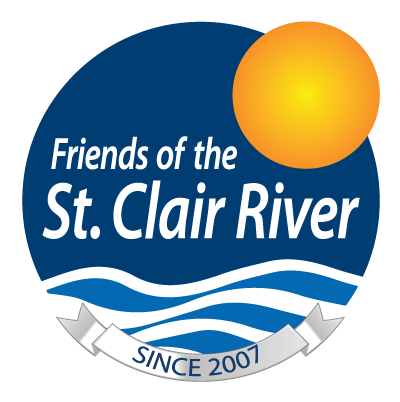
Friends of the St. Clair River
BASES sits as a Director on the Board. Friends of the St. Clair River (FOSCR) is a volunteer-based registered Canadian charitable organization. FOSCR works to promote conservation, beautification, and environmental restoration projects along the Canadian shore of the St. Clair River and was created to assist in the development and implementation of the St. Clair River Area of Concern Remedial Action Plan (RAP).

Source Protection Committee in the Thames-Sydenham and Region
BASES has maintained a connection to the Source Protection Committee in the Thames-Sydenham and Region (SPCTSR). It has 15 voting members plus the chair, and a representative for Conservation Authorities, Health Unit, First Nations, and MECP. This committee was established on November 19, 2007 and has been responsible for guiding the development of a local Source Protection Plan with public and stakeholder involvement.
Wallaceburg Advisory Team for a Cleaner Habitat
Information requests are received by BASES from the Wallaceburg Advisory Team for a Cleaner Habitat (WATCH). The committee is an environmental grassroots organization that represents a group of citizens in Wallaceburg and surrounding areas by engaging with Sarnia-Lambton petrochemical industry on spill prevention and effluent monitoring. WATCH is part of the Industrial Pollution Action (IPAT) team and monitors industrial activities in the area as per the terms set forth in the Ontario Environmental Bill of Rights.

Ontario Ministry of Environment, Conservation, and Parks
BASES actively coordinates, as appropriate, on regional environmental initiatives with the Ontario Ministry of Environment, Conservation and Parks (MECP). The MECP works to preserve and protect land, air, and water, addressing waste, and reduce greenhouse gas emissions. The MECP protects species at risk and their habitat, conserve and manage parks and greenspaces, and tackle climate change. SLEA participates in a range of local and provincial committees with MECP including:
- Co-Chair, Advisory Committee, Sarnia Area Environmental Health Project
- Regulation 419 External Working Group
- SO2 Technical Standard Working Group
- Benzene Technical Standard Working Group
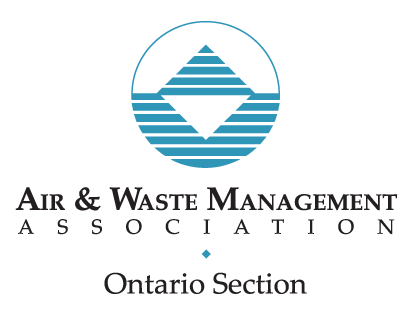
Air and Waste Management Association
The Air and Waste Management Association (AWMA) seeks to improve environmental knowledge and decisions by providing a neutral forum for exchanging information. It has 34 Sections and 65 Chapters worldwide including one in Ontario with local membership, leadership and region-specific programming and networking including events that directly engage BASES Environmental Monitoring.

Environment and Climate Change Canada
BASES connects to national air monitoring as part of regional airshed management including review of NPRI data, interpretation of monitoring information, and trending. Environment and Climate Change Canada (ECCC) administers and enforces various laws including the Canadian Environmental Protection Act, 1999 (CEPA). CEPA functions as an enabling statute, providing a suite of instruments and measures for identifying, assessing, and addressing risks – some of which directly apply to BASES and our members.

Health Canada
BASES has a long history of collaborating with Health Canada on regional health studies in Sarnia-Lambton. Today, BASES works directly with Health Canada, and others, on the Sarnia Area Environmental Health Project (SAEHP). Health Canada is responsible for helping Canadians maintain and improve their health. Indigenous Health is a core service which is further defined as being part of Environmental and Indigenous Health. BASES connects with Health Canada on assessments of air quality impact(s) on Indigenous communities in our region.

Canadian Fuels Association
BASES works closely with the Canadian Fuels Association (CFA) on a range of local initiatives and projects. CFA provides insights into relevant federal and provincial policies that have the potential to impact Sarnia-Lambton. CFA coordinates their efforts with BASES to promote policies that improve industry environmental performance, protect industry competitiveness, strengthen Canada’s critical energy infrastructure, and ensure dependable, safe, and environmentally responsible transportation energy is accessible to all Canadians.
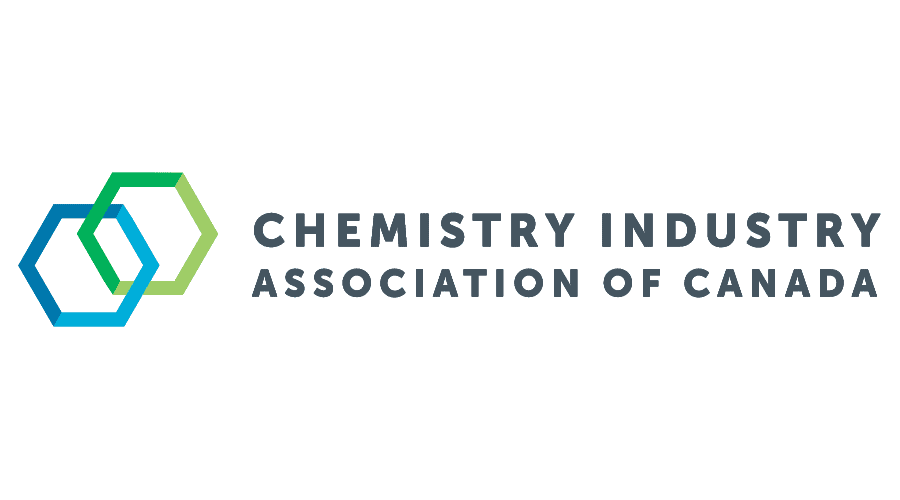
Chemistry Industry Association of Canada
BASES works closely with the Chemistry Industry Association of Canada (CIAC) on a range of local initiatives and projects. CIAC provides insights into relevant federal and provincial policies that have the potential to impact Sarnia-Lambton. CIAC is our champion for Responsible Care® that was founded by them in 1985. Responsible Care® is now practiced in 73 countries and by 96 of 100 largest chemical producers in the world including several BASES members.

Canadian Remedial Action Plan Implementation Committee
Since 2005, BASES has participated on the Canadian Remedial Action Plan Implementation Committee (CRIC). Their mandate is to organize the restoration of Beneficial Use Impairments (BUIs) for the St. Clair River Area of Concern. Since CRIC’s formation, several notable and significant activities have been completed and legislative initiatives enforced that have improved the environmental health of the St. Clair River.
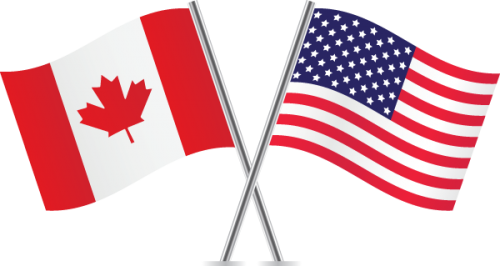
St. Clair River Binational Public Advisory Council
The Binational Public Advisory Council (BPAC) consists of members, including BASES, from both Ontario and Michigan who represent a cross-section of communities, industry, and government. BPAC was created in early 1988 to work with the Remedial Action Plan (RAP) Team and government representatives on a regular basis during development of the RAP. At the time, its role was to convey public opinion regarding RAP goals. The BPAC also offers advice on problem identification, planning methods, public involvement, technical information, identification of available remedial options, selection of remedial actions, and plan recommendations.


